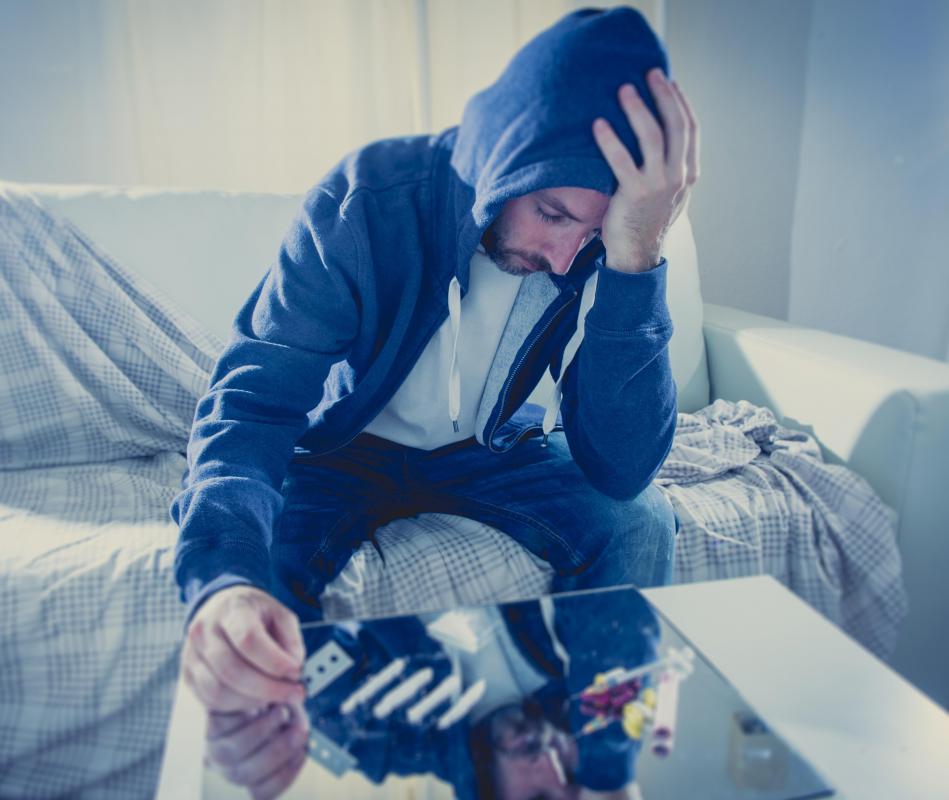At WiseGEEK, we're committed to delivering accurate, trustworthy information. Our expert-authored content is rigorously fact-checked and sourced from credible authorities. Discover how we uphold the highest standards in providing you with reliable knowledge.
What is Drug-Induced Psychosis?
Drug-induced psychosis is the development of psychiatric symptoms in association with drug consumption or withdrawal. It can be brought on by prescription medications used entirely legitimately, as well as in response to drug abuse. Many cases are temporary and will resolve once the drug is withdrawn and the patient is provided with care. In some cases, permanent changes to someone's psychiatric well-being may occur, and long term care may be required.
In psychosis, patients lose contact with reality. They can experience hallucinations, delusions, and impaired logic and decision making. The severity of psychosis can vary considerably between patients. Sometimes, drug-induced psychosis occurs while a patient is taking a drug, and in other cases, it occurs during withdrawal. Alcoholics in rehabilitation therapy, for example, are at risk of developing psychosis while their bodies recover from their alcohol abuse.

Some medications have been known to induce psychosis, especially in situations where multiple drugs are combined as part of treatment. It can be hard to predict when a patient will respond to a medication like an antibiotic or a psychiatric drug with psychosis, as many people with such reactions have no history of mental health problems. Usually, withdrawing the medication will resolve the psychosis, although it may take several weeks for the patient to return to normal.

Prescription medications used recreationally can come with an increased risk of psychosis, as people may overdose, blend them with alcohol or other drugs, or use them incorrectly. Purely recreational drugs are also associated with drug-induced psychosis, which can sometimes be severe as a result of adulterants added to drugs. Some of these adulterants may include other drugs, or impurities with toxic properties.

When someone develops symptoms of psychosis, a psychiatric evaluation is needed to learn more about the patient's situation and to look for common triggers. In the case of drug-induced psychosis, a history of taking medication or drugs known to be linked with psychosis is an important diagnostic clue. Treatments can include anti-psychotic medications, as well as therapy, to help patients work through their period of psychosis. The patient will be periodically evaluated to see if symptoms are resolving or staying stable. Patients who do not recover may need to take anti-psychotic medications for life.
It is important to be aware that some people appear to develop drug-induced psychosis because of an underlying predisposition, with the drugs acting as a triggering event to bring on a mental illness. People with a family history of mental illness should make sure it is noted on their charts and may want to discuss the risks of certain prescription medications before taking them. People with such histories may also want to consider avoiding recreational drugs and substances linked with the development of psychosis.
AS FEATURED ON:
AS FEATURED ON:













Discussion Comments
My husband has been depressed since last June. Was in hospital three times and recently diagnosed with psychotic depression. He is on Abilify and clonazepam in the morning, clonazepam in afternoon, and clonazepam and Effexor at night. He doesn't have hallucinations or delusions, just gets confused and says he can't get his brain to work. He 'spaces out' and can't talk and seems lost.
A few times he thought we were still in the past, many years ago. He sees the devil inside his head (they say it's OCD) and he thinks things like he should hurt me or himself but doesn't want to and never acts upon it.
Could it be the meds? He's been on many that only seem to make him worse once he's been on them for like six to eight week periods. I am desperate for help.
Post your comments